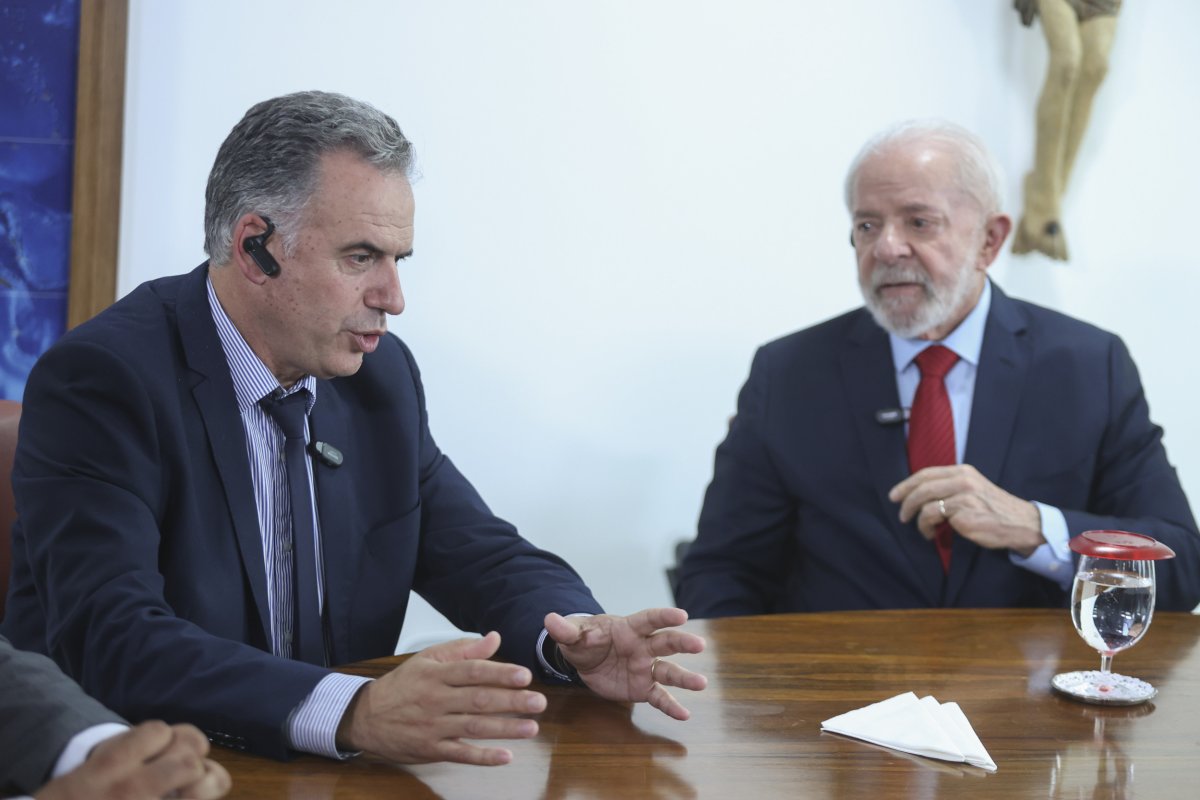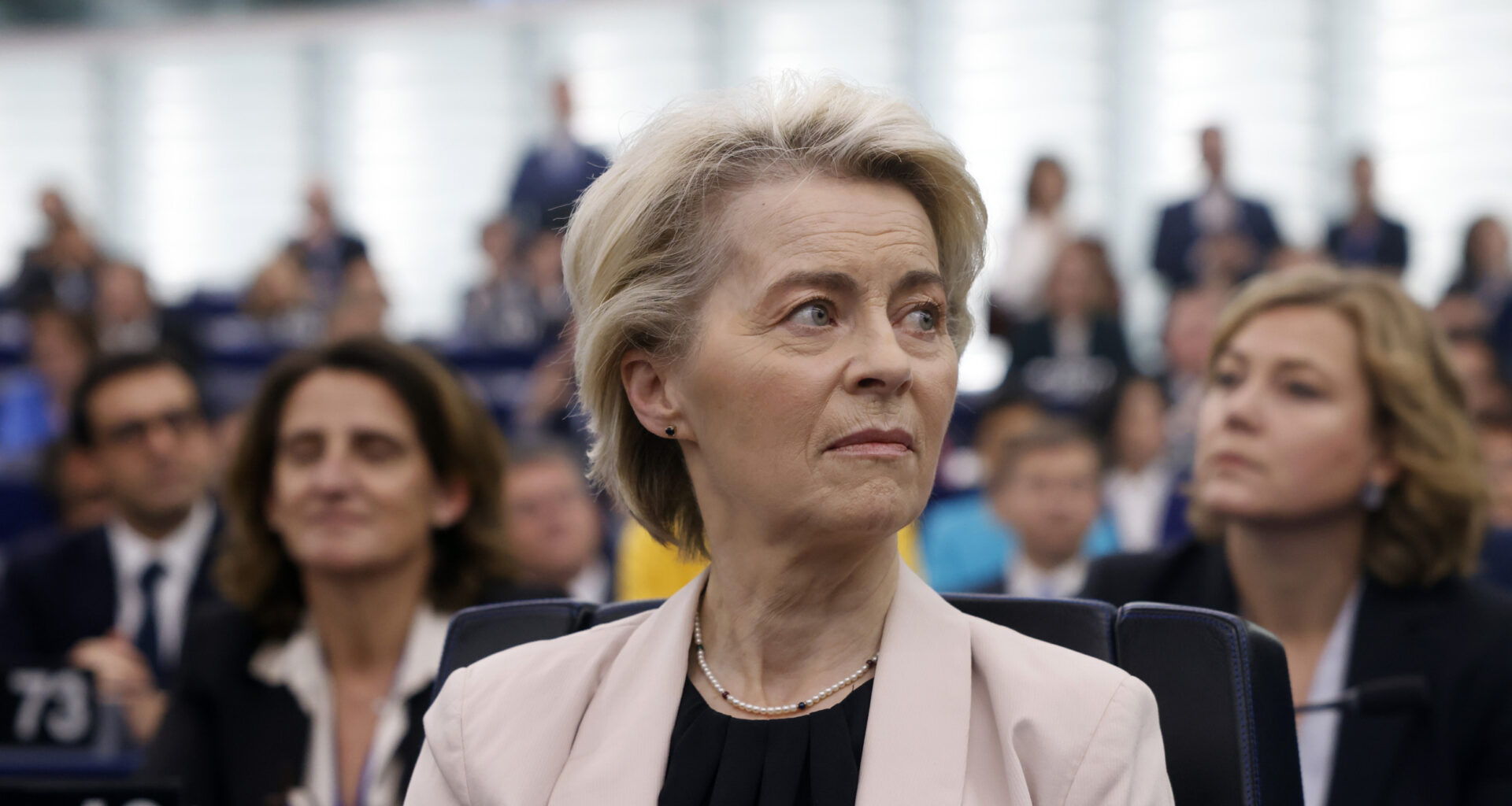European Commission President Ursula von der Leyen arrived in Uruguay on Thursday, aiming to conclude long-delayed negotiations for a landmark trade deal between the European Union (EU) and the Mercosur bloc.
The agreement could create a trans-Atlantic market of 700 million people but faces opposition from EU member states and farmers.
“The finish line of the EU-Mercosur agreement is in sight. Let’s work, let’s cross it,” von der Leyen said, sidestepping objections from some EU countries, in particular France.
French President Emmanuel Macron called the current proposal “unacceptable,” citing concerns about unfair competition for European farmers.
Macron vowed to defend agricultural independence, reflecting resistance from France’s politically influential farming community.

European Commission President Ursula von der Leyen waits for the results of a vote by the European Parliament to approve the new EU College of Commissioners at the European Parliament in Strasbourg, France, Nov. 27,…
European Commission President Ursula von der Leyen waits for the results of a vote by the European Parliament to approve the new EU College of Commissioners at the European Parliament in Strasbourg, France, Nov. 27, 2024. On Thursday, von der Leyen arrived in Uruguay for the final stages in yearslong negotiations to clinch a trade deal between the 27-nation EU and the South American Mercosur trade bloc
More
/Jean-Francois Badias/AP Photo
What’s at Stake in the EU-Mercosur Agreement?
The EU-Mercosur trade pact would establish an economic area encompassing nearly 25 percent of global GDP.
It aims to reduce tariffs and trade barriers, facilitating the exchange of goods between Europe and South America. German automakers including Volkswagen, Audi, and BMW support the deal, because it would lower costs for exporting vehicles to Latin American markets.
A provisional agreement reached in 2019 stalled over disputes related to environmental standards and agricultural competition.
Mercosur, comprising Brazil, Argentina, Paraguay, Uruguay, and Bolivia, could see its producers gain market access to the EU for beef, poultry, and sugar, raising concerns among European farmers.
Critics argue that Mercosur products don’t meet stringent EU environmental and animal welfare standards, providing them with an unfair price advantage.
Can Protests Derail the Agreement?
Farmers across the EU have staged protests to highlight their grievances. Belgian farmers blocked border crossings on Thursday, warning that the deal could flood European markets with cheaper South American goods, undermining EU producers who must comply with stricter standards.
Last year, mass demonstrations underscored the depth of opposition to the deal.
Despite these challenges, von der Leyen’s visit suggests that technical disputes between the EU and Mercosur have been resolved. “The road is open for the top political level to make the final compromises to try to get a deal over the line,” said European Commission spokesperson Olof Gill.

Uruguay President-elect Yamandu Orsi speaks during a meeting with Brazilian President Luiz Inacio Lula da Silva in Brasilia, Brazil, Nov. 29, 2024. If the deal with the South American bloc—comprising of Brazil, Argentina, Paraguay, Uruguay…
Uruguay President-elect Yamandu Orsi speaks during a meeting with Brazilian President Luiz Inacio Lula da Silva in Brasilia, Brazil, Nov. 29, 2024. If the deal with the South American bloc—comprising of Brazil, Argentina, Paraguay, Uruguay and Bolivia—goes ahead, EU producers would have to compete with South American exports such as beef, poultry and sugar.
More
Luis Nova)/AP Photo
What Happens If a Deal Is Reached?
If von der Leyen secures an agreement at the Mercosur summit, the next steps would involve translating the deal into legal text.
The ratification process could reveal whether unanimous approval by all 27 EU member states is required or if a special majority would suffice.
As negotiations reach a critical stage, the deal’s outcome will depend on whether von der Leyen can balance the EU’s economic ambitions with the concerns of its member states and citizens.
This article includes reporting from The Associated Press
